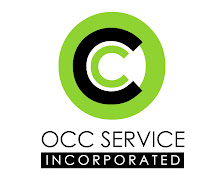According to CNET research, the 10 year old leader in operating systems has held its place, much to the dismay of its designers, Microsoft. Hitting the shelves and OEM’s on Oct 25th 2001, XP was heralded as a critical victory for Microsoft, who found themselves newly vulnerable to a resurgent Apple (under recently rehired Steve Jobs). XP was a major improvement over the disappointing Windows 98, and the abject failure of Windows ME. Its stability, speed, and broad esthetic appeal launched it to the #1 ranking in just 4 years. With Windows 7’s launch already two years in the past, and critical acclaim its credit, the new OS still has some ground to make up before overtaking XP as the dominant OS of business and home users. From its peak in ’09 at 72% share, to its current position at 48%, Microsoft has been pushing hard to move users to the fledgling, if soon to be replaced Windows 7.
Why are so few users willing to part with the OS of the 2000s?
The economic downturn certainly has some effect. While not having the impact on overall IT spending as might have been expected, some cosmetic changes such as desktop OS upgrades may have been shelved in order to invest more in infrastructure.
The second reason for the delay was angst over the flop that was Windows Vista. A much awaited jump to prettier navigation and intuitive design fell flat when device compatibility and security flaws emerged with the short lived OS. Microsoft was eventually cowed by OEMs to continue to install XP on new devices until the release of 7 in ’09. It might be reasonable to expect that the bad press made XP users reluctant even after its latest product launch.
The final reason of the continued use of XP today, is probably the most important. The increased stability and user-friendly additions to Windows 7 have been balanced with the higher demands for hardware and resources required to run a larger OS. This calculation, or at least intuition, has left many IT departments waiting for a downside to complacency.
That downside will at long last come in 2014, when Microsoft finally stops supporting XP, leaving it vulnerable to new security threats left unpatched. By that date, Windows 8 (no release date yet) will almost certainly be available in stores and on new PCs.
Ted Hughes
Managing Director
OCC Service Incorporated
tedhughes@occaustin.com

0 comments:
Post a Comment